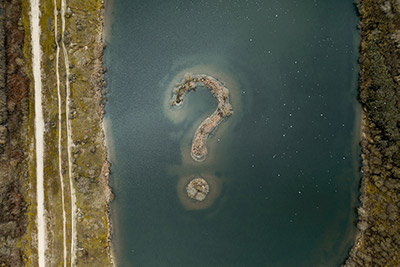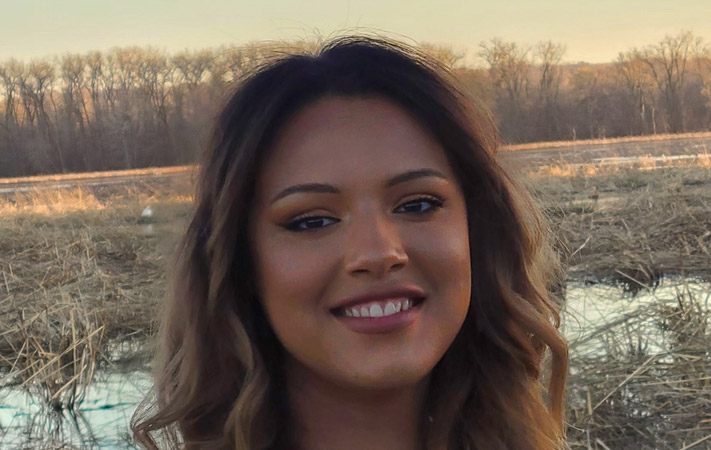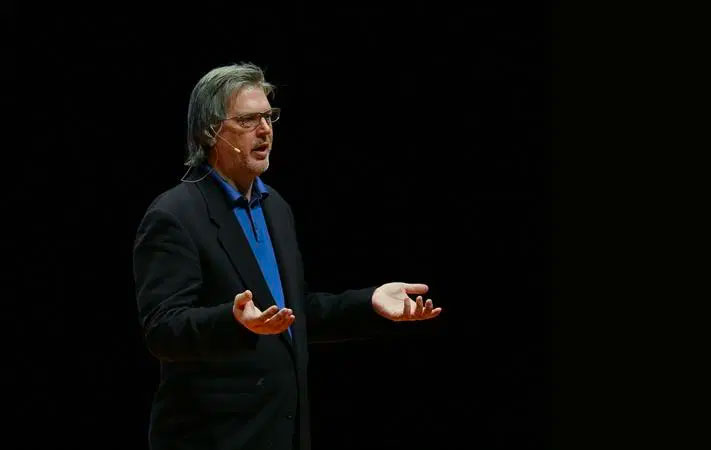EL DINERO NO COMPRA LA FELICIDAD
Durante casi un siglo, hemos medido el éxito utilizando términos estrictamente económicos. Nos fijamos en el PIB, los trabajos, los ingresos, el empleo, las ganancias y los precios de las acciones para determinar si nuestro país tuvo un buen o mal año.
Yet in an advanced economy that on average easily provides enough for everyone, these metrics have little relevance for how people’s lives really are. Many have more than what is needed to be happy, while others can’t make ends meet. And often, it isn’t even money that decides if we feel good or bad.
Nuestro proyecto tiene como objetivo cambiar esta noción introduciendo una simple pregunta en la conversación: ¿CÓMO ESTAMOS?
Contrary to many other well-being metrics that have been tried, we are not using a top-down or outside-in perspective, but base almost everything on people’s perceptions about their own lives. By asking real people, getting their honest views about their lives, we aim at providing input to politics, advocacy groups, and NGOs – and to everyone interested in making life better for people in today’s difficult times.
We are currently rolling out a first trial in Wisconsin and are in the process of finding a European country for a pilot.
SOBRE NUESTRO ENFOQUE

¿Por qué nuevas métricas?
Looking beyond economic statistics becomes essential in turbulent times like today where growth is no longer the norm. We need to understand how the people in our country truly are, so we can improve their well-being even in the absence of economic growth.

¿QUÉ LE IMPORTA A LAS PERSONAS?
Los elementos clave de una buena vida rara vez son económicos, una vez satisfechas las necesidades principales. Sentirse bien acerca de los aspectos cualitativos clave de nuestras vidas, como el propósito y el significado, nuestra salud o nuestras relaciones, es mucho más relevante.

¿CÓMO USAR ESTAS MÉTRICAS?
The “How are We?” project plans to establish a widely accepted standard for obtaining relevant data on how people feel, using a non-partisan and participative approach. A first pilot is currently underway
PASOS CLAVE DEL PROYECTO
CONCEPTO (HECHO)
En los últimos años, hemos estado trabajando en analizar otras métricas de bienestar anteriores y en desarrollar nuestro propio enfoque. Nuestra documentación es de código abierto y está disponible para descargar aquí.
TESTING (DONE)
We have tested and optimized our questionnaire by conducting almost 100 qualitative interviews with people from all walks of life, from advocacy groups, and with policymakers to ensure we capture what truly matters.
PILOT (COMPLETED)
We have completed a first pilot in Wisconsin, where we successfully tested our approach. We are now further improving the HowAreWe methodss and working on larger rollouts for 2022 and 2023. Read the summary!
PREGUNTAS Y RESPUESTAS
Why should I take the survey?
Taking the HowAreWe survey gives you the opportunity to share your view about what matters to you, completely anonymously. It is a way to make your voice heard and provide direct input into the decision-making of leaders in government, non-profit organizations and other institutions. It also gives you an idea of where you stand compared to others.
Where Do MY ANSWERS GO?
Your answers are completely anonymous and will not be linked to your name, email address or phone number. They are stored in a secure online database where it is technically impossible to track them back to you once you hit the “submit” button. On top of that, we have designed our systems in a way that it would even be impossible for the HowAreWe team to reconnect your answers with you.
What is the most important deliverable of the "How Are We" project?
The key result is not just another survey that creates data, but rather a fundamental change in how “a good life” is perceived. While economic security is an important contributor, after a certain income level, it doesn’t add anything to our happiness. We want to identify the key elements where decision-makers and institutions can improve people’s lives the most, shifting the public discourse and action on a local and regional level.
What will you do with my responses?
Your survey answers anonymously go into our database where they are becoming part of a large pool. Together they provide a picture of how the participants in our survey are doing. These results will be available to communities and their leaders, but also to anyone with an interest in improving people’s lives. The results will also be available to you.
How is "HOW ARE WE" different from other initiatives measuring well-being?
Most well-being projects use readily available statistical data that says something “about people”. In contrast, our approach is based on asking “how are you?”, providing the opportunity to share what really matters. This began with the design phase, where we conducted numerous interviews exploring the most important factors of well-being for people from all walks of life. These interviews allowed us to figure out what questions needed to be asked to best understand personal well-being. Second, many of the other well-being metrics take a lens of “how things should be” that might not match the reality of many. This reduces the widespread acceptance by people who have differing opinions.
¿CUÁL ES LA MOTIVACIÓN TRAS VUESTRA INICIATIVA?
El crecimiento económico ya ha sido desafiado dos veces en el siglo XXI (en 2008/09 y 2020/21), y nuestra investigación sugiere que las situaciones de crisis se volverán aún más frecuentes en el futuro. Si queremos asegurarnos de tener una buena vida, necesitamos urgentemente diferentes formas de hablar sobre CÓMO SOMOS.
¿TENÉIS ALGUNA AFILIACIÓN POLÍTICA?
Nuestro proyecto no tiene una visión política, trata de ver a las personas y sus vidas como son, no como queremos verlas.
¿QUIÉN FINANCIA VUESTRO PROYECTO?
Nuestro trabajo se financia con donaciones de particulares y subvenciones institucionales. Ninguno de nuestros patrocinadores tiene voz sobre la dirección o el contenido de nuestro trabajo, y no aceptamos subvenciones que incluyan tales exigencias. En otras palabras: agradecemos todo el apoyo proporcionado en función de lo que estamos haciendo, pero no trabajamos para otros.
¿CÓMO PUEDO AYUDAR?
Hay muchas formas de ayudar en nuestro proyecto. Proporcionando opiniones sobre nuestro enfoque, tanto en general, como también específicamente en nuestro cuestionario. Responda nuestro borrador del cuestionario y envíenos sus comentarios al respecto. Todos los datos se tratan de forma confidencial. También puede ayudar a preparar el lanzamiento como voluntario o haciendo una donación para nuestro esfuerzo.
NUESTRO EQUIPO
CÓMO ESTAMOS es una iniciativa conjunta del Institute for the Study of Energy and Our Future (ISEOF) y del Institute for Integrated Economic Research (IIER). Actualmente estamos construyendo una coalición de socios mucho más grande para apoyar este esfuerzo.

Danadra Jean-Noel
Program Director
Danadra is the Program Director for the How Are We pilot phase, responsible for a successful launch in Colorado. She holds a B.A. degree in Sociology from Georgia State University and an M.P.A in International Development and Economics from Clark Atlanta University.
Prior to joining our team, Danadra was a Senior Supervisor of National IT Operations at the Federal Reserve Bank of Kansas City. She led key programs at the Kansas Fed and teams throughout the Federal Reserve System. She also worked in multiple roles internationally in Haiti and Tanzania for various non-profit and civic organizations.

Dan L. Witters
Steering Committee
Nate Hagens tiene un doctorado en Recursos Naturales de la Universidad de Vermont y un Máster en Finanzas con Honores de la Universidad de Chicago. Anteriormente fue presidente de Sanctuary Asset Management y vicepresidente de las firmas de inversión Salomon Brothers y Lehman Brothers. Trabajó en la Junta de Post Carbon Institute (PCI) y en el Institute for the Study of Energy and Our Future (ISEOF), matriz de The Oil Drum, uno de los sitios web más populares para el análisis y discusión de problemas energéticos globales, actualmente comprometido con energía, alfabetización de sistemas y educación.

Hannes Kunz
Steering Committee
Hannes Kunz tiene un Máster en Derecho y Economía de la Universidad de Zúrich y un doctorado en Economía de la Universidad de St. Gallen en Suiza. Antes de fundar IIER, trabajó como ejecutivo senior en varias industrias y como socio en empresas internacionales de consultoría de gestión con asignaciones en Europa, América y Asia. Su investigación se centra en las finanzas, la deuda y los sistemas de suministro de energía.
Hannes ha sido miembro de la junta de varias organizaciones sin ánimo de lucro y también es miembro de la junta del Institute for the Study of Energy and Our Future (ISEOF).

Makayla Moses
Investigadora
Makayla Moses is working as a researcher with our project. She is graduated from the University of Minnesota – Twin Cities in Anthropology and Sociology. She is responsible for many aspects of our project, ranging from outreach to data analysis and social media activities.

Nate Hagens
Steering Committee
Nate Hagens tiene un doctorado en Recursos Naturales de la Universidad de Vermont y un Máster en Finanzas con Honores de la Universidad de Chicago. Anteriormente fue presidente de Sanctuary Asset Management y vicepresidente de las firmas de inversión Salomon Brothers y Lehman Brothers. Trabajó en la Junta de Post Carbon Institute (PCI) y en el Institute for the Study of Energy and Our Future (ISEOF), matriz de The Oil Drum, uno de los sitios web más populares para el análisis y discusión de problemas energéticos globales, actualmente comprometido con energía, alfabetización de sistemas y educación.

SARAH PARK
Steering Committee
Sarah brings leadership experience across multiple sectors, including as a Director at one of the oldest community foundations in the US and as a senior ground-floor team member of a successful IT start-up scaled to 5 continents. Sarah has served on numerous public sector boards, advisory groups and strategic planning teams, from governmental to diverse social justice, education and wellness focused NGO’s. She holds a Masters in Education.
As Community Systems Lead at the Wend Collective, Sarah works to bring to life a world more oriented to equity and wellness for all through systems change centered in and driven by community, context and our interconnectedness.

Erin Hutchinson
Bayfield Outreach
J Erin Hutchinson’s career has a common thread of passion driven launches of companies and organizations. After leaving home at 16, she launched several small businesses (from a video store chain to coffee shop to retail stores) and two nonprofits all by the age of 21. This experience led her to launching a creative agency, Narrative Shift, that primarily works with healthcare tech & biotech startups to help them craft a corporate narrative that generates excitement & curiosity amongst their target customers.
Erin is passionate about HowAreWe and has offered to become our local face in Bayfield County, helping us spread the word about our project.
Mary SCHLaEFER
Director Outreach
coming soon
-
APOYE CÓMO ESTAMOS
Todas las donaciones realizadas a través de la web serán utilizadas íntegramente para financiar el proyecto Cómo Estamos.
$65 donados


